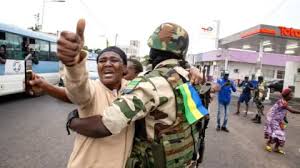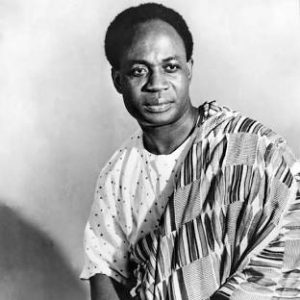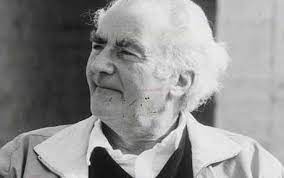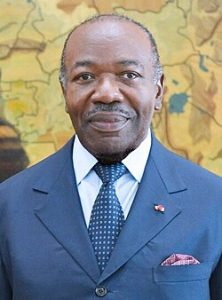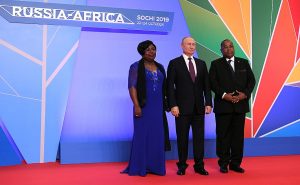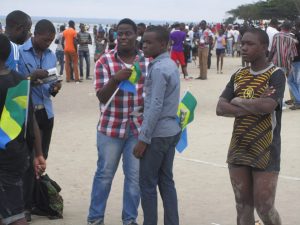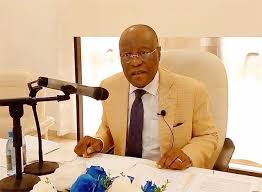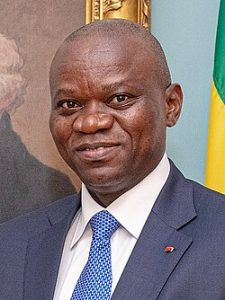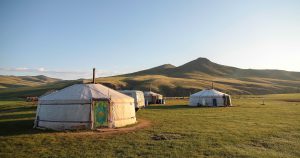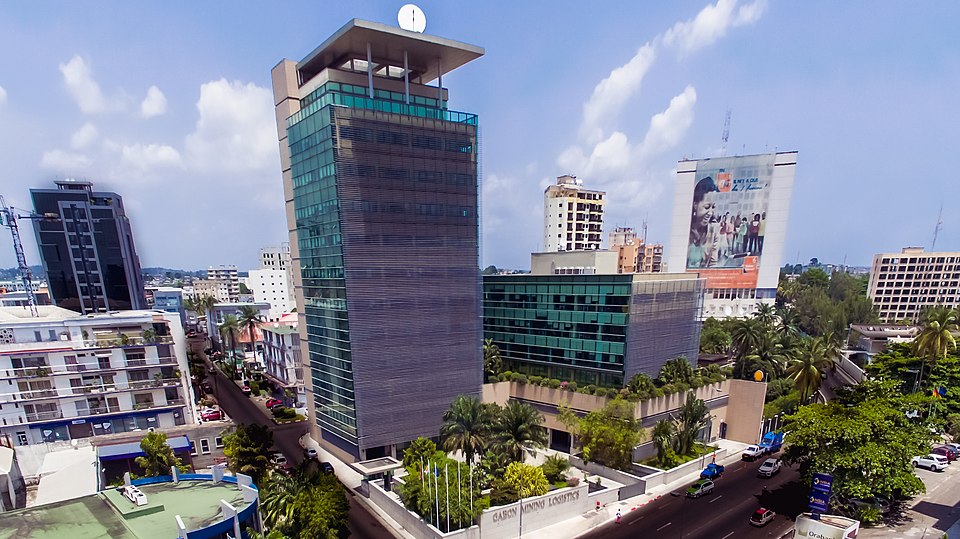
Africa’s security threats are increasing in many areas since liberation from colonization. One tactic in particular that rings many alarms domestically and internationally are military coups and the reasoning behind them. Recognized as responses to assimilated behaviors practiced from post colonial leadership with continuous instability patterns during Africa’s ongoing rebuilding era and taking place in Ghana, or other countries, but most recently Gabon. Embezzlement, election interference, , A build up of national Inspiration, courage and set backs that discouraged even the most optimistic record keeper of Africa while developing and curating progressing efforts.
Gabon, like many other countries across the African continent, runs in an ongoing marathon towards sustainable and economic growth to sustain its growing population. Of course, major hurdles for its national security have become concerning. Rather than external threats, have deceit, corruption, and elitism caused their own failures and brought on a coup? How did the people of Gabon come to favor and appreciate a military response to self-serving government actions and corrupt behaviors? How can we assess the security threat that military coups trigger, such as from the recent successful attempt after the recent general election in Gabon?
On August 30th, 2023, the Gabonese military announced they had taken power over Gabon away from its President Ali Bongo Onidimba. Only a day after Gabon’s election committee announced Pres. Onidimba’s 3rd term resulting from its recently held election in which the opposition only won 31% of the votes.1 The Committee for the Transition and Restoration Institution (CTRI) explained on national television that they had found irregularities in the election. Enforcing curfews, closing the borders, and making Pres. Onidimba a political prisoner in his own home.2 General Oligui Nguema, was unanimously declared the new leader for the transition underway. Celbrations erupted in the streets.3 Why did citizens of Gabon celebrate a coup?
Africa’s History of Sabotaged Development
The answer to Africa’s current problem lies in its past history from colonization and the aftermath of techniques left behind helped Africa reached this point all over. These military takeovers are more frequent across Saharan Africa with trending highlights of the major ongoing security challenges that many ordinary Africans face on a daily basis for a long time. Spreading among the nations, since the time of their independence back in the 1960s, after WWII brings everyone’s attention to their own assimilated colonial behaviors. One major important factor is the culture of authoritarianism, that was birthed by colonization. A structure that was adopted by post colonial leaders and their elites since Sudan first became an independent state in 1956. A foreign concept that will continue to be rejected in all manners even when trying to reroute by undoing actions no matter what African Country. 4
Decolonization or colonization proved it never related to African society, it was widely believed that to be able to self rule would be the difference maker in post colonization instead of authoritarianism culture all over Africa no matter their experiences. As the Inspiring nationalist with a vision of Africa, Kwame Nkrumah, once said, “Seek ye first the political kingdom and all else would be added unto you.” Those who felt the same way, also felt that the colonial state in Africa were only suited for Europe’s best interests and not of their own. An argument that is still being held today with current non national state relationships. This would temporarily change once African leaders take place, but lead them back down to the path of dependency through academic views. Once after a boost in their production and economy sparked hope for their future. The self doubt and negative attitudes among the scholars increased during Africa’s pivotal times in the 1970s of post colonization.5
The growing concerns on collective benefits and greater prosperity for all under authoritarian rule shifted towards the idea that independence failed to give true liberation. This thought grew even more during the 1980s and 90s causing major setbacks across Africa. So much, that Basil Davidson, who was documenting the progress in Gabon at the time and was deemed as the eternal optimist of all things Africa, had since switched his loyalty to successful guerrilla attempts against the leaders and the elites. By the early 1980s Davidson authored a book disputing that the independence project was a fatal premise because it’s an alien model of a nation-state 6. It would be no coincidence how he came to these terms after the selection of President Omar Bongo and his style of leadership.
Continuing The Tradition of Dynasty Authoritarianism
Why, after going through so much under colonization, would they continue on with this way of rule of life under domestic authoritarian style? The answer goes back to how the colonial structure did not detribalize the people it conquered and never properly succeeded in Africa. Therefore when decolonization took place, it didn’t have successful achievements because of the incomplete job of colonization 7. Instead it encourages further alienation of the mass population from the structure of power in a domestic manner. Gabon’s independence came after WWII but from 1967 until 2009 Gabon was ruled by President El Hadj Omar Bongo. Who reigned over a 4 decade dynasty period. In the early 1990s he declared Gabon a one party state, but changed it back to a multiparty system only because of political opposition.
Discussions of corruption and election fraud under his rule lasted until his death in 2009. Echoing concerns of how external dependency and domestic authoritarianism mutually benefit one another, serve the interests of the elites, and while leaving the mass population struggling. After Pres. Omar Bongo’s death, Ali Bongo, his son, was elected and took his place as president while continuing the tradition of external dependency and domestic authoritarianism relationships as did his father. The most recent since the resurgence of Africa’s coups in 2020, would be with BRICS+. Seeing Russia and China as alternate allies and influences from the usual United States and Europe, Gabon’s geo-strategic, geo-economic and geo-political dimensions are constantly up for debate and controversies. Upgrading the concerns from authoritarianism to the type of non state partnerships within Africa that are only suited for Europe’s best interests and not of their own. Bringing back the past concerns of how partnerships like with
BRICS+ have a way of influencing decisions in everything from economic to socio-political. Giving many Africans reasons to question if working with BRICS+ is more of an exploitation plot than strengthened relations. It was found out recently that Russian took part in coup protections, and created diplomatic and security relationships between the coupe regimes, state officials and the Wagner group. Giving many Africans reasons to question if working with BRICS+ is more of an exploitation plot than strengthened relations for Gabon and its people 8. But that is not the only type of exploitation that they are facing.
Reaping What Corruption Sows
Gabon’s one of Africa’s most wealthiest countries rich with resources, but you wouldn’t be able to tell because the wealth distribution is disproportioned. Their unemployment rate is at 60% for young adults under the age of 25, and has a fertility rate of 3 children per woman. Young adults will not be able to meet the mismatch in the supply of jobs and skills. Increasing wider wealth gaps while the relationship of the government, the elites, and the people continued to decline. Accusations of embezzlement and fraud by elites and family members of Pres. Ali Bongo didn’t help but instead fueled the support of the Gabonese republic for their military army’s takeover attempt after their 2023 election 9.
While many of the Gabonese have a strong support for democracy, they also feel elections do not allow for them to remove leaders that are not satisfactory or meeting their expectations. Political opposition groups, like Alternance 2023, were created for a hope of change after a string of acts of favoritism with political elite and control over the access of media. Their leader, Professor Albert Ondo Ossa was able to resonate with the people of Gabon and came up with a plan that addressed the inequalities and unemployment rates. Making him a popular choice for the upcoming election that year that had a 99% turnout rate. When election day came it didn’t stop the PDG from participating in election interference with voting paying schemes. They gave voters 10,000 CFA francs for going to the voting booth and an additional vote 15,000 CFA francs afterwards if they showed that their vote was for incumbent Pres. Bongo again 10.
Along with Gabon’s cultural and traditional factors of social stigmas that keep marginalized people from participating in the election process, it gave favorable support from the people for the CTRI to take drastic measures soon after the election was called. During the early hours mornings of 4:30 am it was reported by CGE that Pres. Bongo had won the majority vote by 64% and Prof. Ossa by 31% with no supporting voting data. Creating the rumor that it was indeed Prof. Ossa who had actually won and soon after, the election was canceled, General Nguema became the new leader declared by the the CTRI, and Pres Bongo went under house arrest. The African Union, France, China, and the United States all urged for Gabon to get control of this military takeover and the safety of Pres, Ali Bongo. Stating this would not be an acceptive way to address corruption and political differences even if they did end a 55 year dynasty 11.
Devine Interference Or Continued Paths To Future Threats?
To counter the work of President Bongo and the PDG, CTRI had Gabon’s banned media restored and curfews placed for local businesses 12. Family members of the President were also arrested, his current wife and son, under the suspension of embezzlement and money laundering. Leaving President Bongo begging for his wife to be released. August 31st, 2023 the African Union suspended Gabon’s membership due to the coup. CTRI and the community leaders of Gaboon met and discussed the next steps for Gabon and its people. Soon after, the President had been released from house arrest and some major changes followed as a response to the military coup 13.
To appease surrounding states and keep recognition of membership, Gabon’s constitution was rewritten to allow members of the military to contest political office, remove the role of prime minister, extend presidential terms to seven years and abolish the second round electoral system. They have an upcoming election coming up on April 12, 2025 where Gen. Nguema had declared that he was running. The problem with Gen. Nguema, who once protected the president and the elites since 2019, is that he is also the cousin of President Ali Bongo. So if he did win the upcoming election it would still be a branch of the Bongo family tree dynasty. The behavior and characteristics that the people of Gabon felt towards Pres. Bongo from his actions and led to the result of the Gabonese republic support of the coup actions is a result of how toxic leadership can influence organizational culture, security and politics 14.
As a growing security threats, coups create instability among the people, the government, their military and alliances. Becoming an unconstitutional change of government (UCG) that sets back sustainability further. Even though the CTRI has their own share of Hunan rights abuses they have made a vow for an inclusive national dialog open to all levels of civil society while mapping out a path back to democracy for the people of Gabon. It can not be viewed as a normal tactic to resolve governing issues. With a mixture of toxic leadership, colonization, culture expectations, and foreign non state interference having a heavy presence within Gabon, it is no wonder how the Coup of 2023 became Africa’s 100th successful attempt since post colonial independence. It is only right that when a transition towards democracy occurs everyone should be involved15. Even when internal government security conflicts of threats deceit, expolitation, corruption, and elitism is the root of their failures and military a coup.
- Henry, Archibald S., and Elizabeth Murray. “What to Know about Gabon’s Coup | United States Institute of Peace.” What to Know About Gabon’s Coup, August 31, 2023, https://www.usip.org/publications/2023/08/what-know-about-gabons-coup. ↵
- AfricaNews. “Gabon: President Ali Bongo under House Arrest, According to Military Putschists.” Africanews, August 13, 2024. https://www.africanews.com/2023/08/30/gabon-president-ali-bongo-under-house-arrest-according-to-military-putschists/. ↵
- Henry, Archibald S., and Elizabeth Murray. “What to Know about Gabon’s Coup | United States Institute of Peace.” What to Know About Gabon’s Coup, August 31, 2023, https://www.usip.org/publications/2023/08/what-know-about-gabons-coup. ↵
- Nugent, Paul. Africa since independence: A comparative history. Houndmills, Basingstoke, Hampshire: Palgrave Macmillan, 2012. ↵
- .Nugent, Paul. Africa since independence: A comparative history. Houndmills, Basingstoke, Hampshire: Palgrave Macmillan, 2012. ↵
- Akande, Oyewole, Lucky Mogakane, Sharon Mueni, Lwandiso Dlokweni, Wanjiru Ng’ang’a, Hans Ngala, Lindiwe Banda, and Conrad Mbewe. “Is the Biggest Problem in Africa Bad Leaders?” TGC Africa, December 4, 2023. https://africa.thegospelcoalition.org/article/is-the-biggest-problem-in-africa-bad-leaders/ ↵
- Akande, Oyewole, Lucky Mogakane, Sharon Mueni, Lwandiso Dlokweni, Wanjiru Ng’ang’a, Hans Ngala, Lindiwe Banda, and Conrad Mbewe. “Is the Biggest Problem in Africa Bad Leaders?” TGC Africa, December 4, 2023. https://africa.thegospelcoalition.org/article/is-the-biggest-problem-in-africa-bad-leaders/. ↵
- Yemisi, Olawale. “BRICS and the Resurgence of Military Coups in Africa.” APRI, December 23, 2024. https://afripoli.org/brics-and-the-resurgence-of-military-coups-in-africa. ↵
- “Explore All Countries Gabon.” Central Intelligence Agency, February 5, 2025. https://www.cia.gov/the-world-factbook/countries/gabon/#introduction. ↵
- Gabon 2023 human rights report, n.d. https://www.state.gov/wp-content/uploads/2024/03/528267-GABON-2023-HUMAN-RIGHTS-REPORT.pdf. ↵
- Henry, Archibald S., and Elizabeth Murray. “What to Know about Gabon’s Coup | United States Institute of Peace.” What to Know About Gabon’s Coup, August 31, 2023. https://www.usip.org/publications/2023/08/what-know-about-gabons-coup. ↵
- “#KEEPITON: Our Call to Guarantee Open and Secure Internet Access during Upcoming Elections in Gabon.” Access Now, August 28, 2023. https://www.accessnow.org/press-release/keep-it-on-in-gabon/. ↵
- African Union suspends Gabon’s membership after military coup | Reuters, n.d. https://www.reuters.com/world/africa/gabon-awaits-next-move-junta-after-coup-ousts-president-bongo-2023-08-31/. ↵
- Henry, Archibald S., and Elizabeth Murray. “What to Know about Gabon’s Coup | United States Institute of Peace.” What to Know About Gabon’s Coup, August 31, 2023. https://www.usip.org/publications/2023/08/what-know-about-gabons-coup. ↵
- Civicus. “Gabon: The End of a Dictatorship… and the Beginning of Another?” CIVICUS LENS, September 13, 2023. https://lens.civicus.org/gabon-the-end-of-a-dictatorship-and-the-beginning-of-another/. ↵
